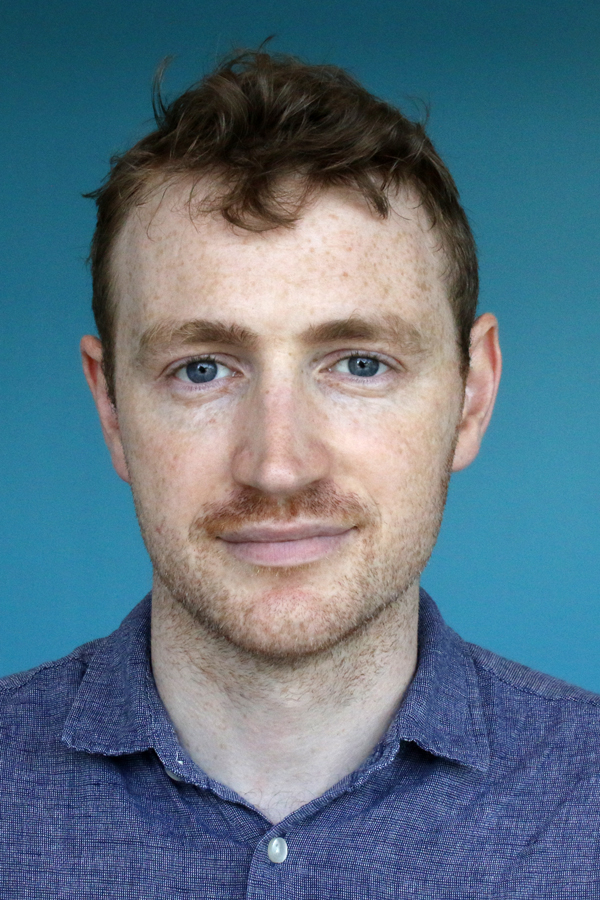Study options
- Starting in
- September 2025
- Location
- Mile End
- Fees
- Home: £12,850
Overseas: £29,950
EU/EEA/Swiss students
What you'll study
On this MSc course, you’ll be placed at the forefront of innovation in aerodynamics. We aim to build on your existing expertise by equipping you with advanced skills in computational modelling, numerical techniques and an in-depth understanding of engineering approaches to current aerospace problems. You can then choose to specialise in key fields by choosing from optional modules.
You’ll be supported to gain the skills necessary to work in the aerospace engineering industry, whether as a researcher or as an engineer for an aerospace company.
You’ll be integrated into one of our research teams to work on an aerospace engineering-related project, supervised by one of our academic experts. You’ll have access to our excellent facilities to work on your project. From classroom-based learning to hands-on work in labs and workshops, every day will be different.
Accreditation
Our Advanced Aerospace Engineering MSc has been accredited by the Royal Aeronautical Society and Institution of Mechanical Engineers.
The accredited MSc will meet, in part, the exemplifying academic benchmark requirements for registration as a Chartered Engineer. Accredited MSc graduates who also have a BEng (Hons) accredited for CEng will be able to show that they have satisfied the educational base for CEng registration.
Graduates from an accredited MSc programme who do not also have an appropriately accredited bachelor's degree will need to have their qualifications individually assessed through the accrediting body's Individual Case Procedure if they wish to acquire CEng status.
Structure
- Six elective modules
- Research project
Compulsory/Core modules
The module is an intensive research module that spans all three MSc semesters. It draws together the knowledge and skills from the taught component to address a research challenge of significant scope to be undertaken independently, under supervision. It focuses on the technical, project management and communication skills needed to successfully execute academic- and/or industry-oriented research. The project entails to apply research methods to solve original problems of fundamental or applied nature.
Elective modules
This is an advanced module in computational modelling focusing on computational solids. The finite element method is covered together with applications to medical, aerospace and mechanical engineering. Hands on experience in solving engineering problems using commercial packages is an important part of the module. There is an introduction of optimisation methods used in computational engineering across industry sectors. Topology shape and size optimisation methods and their applications will be covered. It is envisaged to provide guest lectures by SEMS' Visiting Professors. The student will have assignments with the industry-leading software ABAQUS for solving generic FEA problems as well as structural topology optimisation problems. Student will be encouraged to select problems relevant to their programme of study.
The use of mathematical models, numerical optimisation algothrims, heuristic search methods, metamodelling techniques, Design of Experiment and complex decision analysis methods for a wide range of engineering system and product design problems will be introduced. Examples and individual/group design projects will cover many areas of aerosapce, mechanical, chemical, and materials engineering problems.
This module uses the classical V-model to provide a guide to the characteristics of systems and fundamental principles of systems engineering. It addresses how a systems approach can be applied to one or more engineered systems contexts as a part of managed interventions into complex real world problems. Topics include stakeholder analysis, requirements definition, system architecture and concept generation, trade-space exploration and concept selection, design definition and optimisation, system integration and interface management, system safety, verification and validation, commissioning and operations and related/emerging disciplines/topics in Systems Engineering.
Deriving insight from data is essential to problem-solving innovation in modern engineering disciplines. To gain this insight, the data needs to be understood and appropriately interpreted. In this module, you will develop tools, systems, and processes to enable the application of artificial intelligence in real-world contexts. You will learn probability theory and the transformation of data from a high- into a low-dimensional space. You will develop statistical thinking in order to design data collection, derive insights from visualising data, obtain supporting evidence for data-based decisions and construct models for predicting future trends from the data. You will learn techniques applied to your discipline for unsupervised and supervised learning and apply them to automating routine engineering tasks, and to apply machine learning approaches to complex and critical systems in a holistic and system-oriented way.
The module introduces robotics as an integral part of modern automation, provides an introductory insight into the engineering design and application of robot manipulator systems. It also provides an understanding of kinematics, dynamics and trajectory planning of robotic manipulators, actuators and sensors, principles and roles in robotics. It introduces various aspects of robot modelling and control and problems encountered in robot programming and their remedies.
This is an advanced integrated MSc module consisting of the main topics that are of primary importance to aerospace vehicle flight control and flight simulation. The module aims at providing an in-depth understanding of the principles of flight control and aerospace vehicle simulation. Basic functions of aerospace and launch vehicle flight control systems synthesis and the kinematics and dynamics of flight simulation including pilot physiological modelling and human factors would be covered as part of the course. A student on the course can expect to gain design experience with the application of the numerical simulation of aerospace vehicle dynamics associated with a variety of such vehicles provided he/she completes all tutorial and the supplementary design exercises. He/she could also expect to gain experience in using the School's integrated flight simulation facility. On completing the course the student would be able to parametrically design and synthesise a typical aerospace vehicle control subsystem.
This module is an advanced module built on the 2nd year Heat Transfer (DEN228) and Mechanics of Fluids 2 (DEN205) modules. The module includes transient conduction with high Biot numbers, mathematical treatment of convective heat transfer problems, boundary layer equations and its analytical solution for flow over a plain surface, natural convection and pipe flow. The topics in mass transfer, turbulent flows, condensation and boiling heat transfer, and radiation will be further developed.
This module introduces students to numerical analysis and computational methods for solving engineering fluid dynamic problems. It enables students to develop skills in programming and using CFD codes using modern computational techniques, including the properties of discretisations and their application to simple model equations. Aspects of modelling turbulence and microscale capillary flow are considered. The students will generate meshes, solve viscous flow problems and perform the analysis of the quality of the simulations.
This module addresses advanced topics in compressible flows. Supersonic internal and external aerodynamics will be looked at in details including the design of supersonic inlets and outlets for minimum losses as used in high-speed aerospace vehicles, and advanced concepts of shock tubes as used for testing high supersonic and hypersonic flows. Examples of existing and new aerodynamic designs of high-speed aerospace vehicles as future supersonic transport aeroplanes and space launchers will be examined to illustrate the implementation of high-speed aerodynamics concepts.
This module will explore sensing and measuring physical quantities interfaced to computer-based data acquisition and processing tools. As the signals produced are often complex and plentiful, tools to process and analyse them appropriately will be covered. Additionally, both theoretical and practical skills of data acquisition, build and signal processing will be taught. Key software of importance for managing the signals will be introduced and applied to students' fields of interest.
In this module a description of the space environment and its influence on the spacecraft design and materials selection is discussed. This is followed by an in depth description of Keplerian celestial mechanics, co-planar and non-planar orbital transfers involving both impulsive and continuous manoeuvers, and perturbation effects that characterise the real non-Keplerian nature of orbital motion. The principles of the optimal synthesis of trajectories is discussed. An introduction to space vehicle propulsion is then presented including a description of launch-vehicle dynamics, the rocket equation and metrics that are used to characterise the fuel requirements over a particular mission. The physics of plasmas is discussed in some detail. After the basics of electric propulsion, the principles and features of a range spacecraft thrusters are discussed to facilitate the selection of an appropriate propulsion system for meeting the requirements of a specific mission. This followed by the background on Electromagnetic theory, Antennas, Helicon waves and Radio Frequency Propulsion based on Helicon waves.
Please note that all modules are subject to change. The credit load for elective modules must be balanced across semesters.
Assessment
- 50% Modules
- 50% Research project
- You will be assessed using a mixture of formal examinations and coursework in your taught modules.
- You will undertake self-directed work in completing your extended research project.
Research project
The research project forms a major component of your degree. You’ll complete this under close supervision.
Recent research projects include:
- Jet Noise: Aircraft noise pollution continues to affect the development of aviation.
- Nasal Aerodynamics: Airflow in nasal cavity resembles in many aspects aeronautical flow.
- Numerical algorithms development (fluids and acoustics).
—"I was impressed with the welcoming atmosphere, the research opportunities Queen Mary provides, and its Russell Group title. The aerospace lab was extremely impressive, housing low speed and high speed wind tunnels, a flight simulator, plus a workshop lab that gives students the opportunity to build or 3D print projects."
Ashley Modeste Johnson, Aerospace Engineering MSc, 2019
Teaching
This programme is taught by leading academics with experience in research and industry, who have previously worked at organisations including Nasa Langley Research Centre, Airbus, Cambridge University, Rolls Royce, German Aerospace Agency, Imperial College London, the American Institute of Aeronautics and Astronautics, and Central South University China.
Our academics conduct high-quality research in a wide range of areas. This research feeds into our teaching at all levels, ensuring you share in the latest advancements.
You will be taught through a combination of lectures, seminars and laboratory sessions, as well as completing coursework for academic feedback.
You will be assigned an Academic Advisor who will guide you in both academic and pastoral matters throughout your time at Queen Mary.
Where you'll learn
Facilities
Engineering facilities include:
- Combustion Laboratory
- Computational Modelling Facilities
- Flight Simulator
- Mechanical Testing Facilities
- Two-Phase Flow and Heat Transfer Labs
- Whitehead Aeronautical Laboratory
- Wind Tunnels - High Speed, Low Speed, Acoustics Research Rig
- Workshops for Engineering Manufacture
Explore our facilities with our virtual tour.
Campus
Teaching is based at the School of Engineering and Materials Science on Queen Mary’s main Mile End campus, one of the largest self-contained residential campuses in the capital.
Researchers may also have access to other specialised research facilities elsewhere at Queen Mary, such as Nanoforce and NanoVision.
Our Mile End campus is 15 minutes from Central London by tube, where you will have access to many of the University of London’s other facilities, such as the Senate House library.

About the School
School of Engineering and Materials Science
The School of Engineering and Materials Science (SEMS) was the first School in the UK to open a materials department and we’ve been at the forefront of international engineering and materials research ever since.
The internationally competitive work of our research groups pushes the boundaries of science: we’ve been awarded substantial grants to explore the creation of technology to capture energy from sea waves and develop artificial kidneys to avoid animal testing. Our research is even celebrated on stamps!
You will be taught by our internationally recognised staff and will have access to our outstanding facilities.
In the 2021 Research Excellence Framework (REF), the School ranked 7th overall in Engineering and 2nd for the measure of the quality of our research outputs. We are in the top 120 international institutions for engineering (THE World University Rankings, 2022). We are part of both the University of London and the Russell Group.
Career paths
You can expect to leave this programme as a well-qualified graduate, with opportunities for employment in many leading industries, as well as in research. Graduates from Aerospace programmes at Queen Mary have been hired into roles such as:
- Systems Engineer in Maritime and Combat Systems
- Data Engineer
- Design Engineer
- Graduate Systems Engineer
- Audio Visual Engineer
- Process Engineer
- Stress Engineer
- IT Analyst
At companies and organisations which include:
- Boeing
- British Airways
- Collins Aerospace
- Deloitte
- Goldman Sachs Group
- Huawei Technologies
- IBM
- Transport for London
Our Industrial Liaison Forum gives you a chance to network with our industrial partners and build your professional contacts while at university.
- 95% of Engineering and Materials Science postgraduates are in employment or study 15 months after graduation (GOS, 2021/22)
- 89% of those postgraduates are in highly skilled roles (GOS, 2021/22)
Fees and funding
Full-time study
September 2025 | 1 year
- Home: £12,850
- Overseas: £29,950
EU/EEA/Swiss students
Conditional deposit
Home: Not applicable
Overseas: £2000
Information about deposits
Queen Mary alumni can get a £1000, 10% or 20% discount on their fees depending on the programme of study. Find out more about the Alumni Loyalty Award
Funding
There are a number of ways you can fund your postgraduate degree.
- Scholarships and bursaries
- Postgraduate loans (UK students)
- Country-specific scholarships for international students
Our Advice and Counselling service offers specialist support on financial issues, which you can access as soon as you apply for a place at Queen Mary. Before you apply, you can access our funding guides and advice on managing your money:
Entry requirements
UK
Degree requirements
A good 2:2 (55% or above) or above at undergraduate level in Engineering (Aerospace, Mechanical, Automotive, Nautical, Marine, Hydraulic, Civil, Chemical), Physics, Mathematics or a related discipline.
Additional information
Please note that this programme may require ATAS, find out more here: https://www.qmul.ac.uk/welfare/visas-international-advice/visas-for-study/atas/
Find out more about how to apply for our postgraduate taught courses.
International
English language requirements
The English language requirements for our programmes are indicated by English bands, and therefore the specific test and score acceptable is based on the band assigned to the academic department within which your chosen course of study is administered. Note that for some academic departments there are programmes with non-standard English language requirements.
The English Language requirements for entry to postgraduate taught and research programmes in the School of Engineering and Materials Science falls within the following English band:
Band 4: IELTS (Academic) minimum score 6.5 overall with 6.0 in each of Writing, Listening, Reading and Speaking
We accept a range of English tests and qualifications categorised in our English bands for you to demonstrate your level of English Language proficiency. See all accepted English tests that we deem equivalent to these IELTS scores.
Visas and immigration
Find out how to apply for a student visa.
If you're an international student you'll need to get ATAS (Academic Technology Approval Scheme) approval, which will extend the visa application process by 2-4 weeks. Find out more about ATAS














